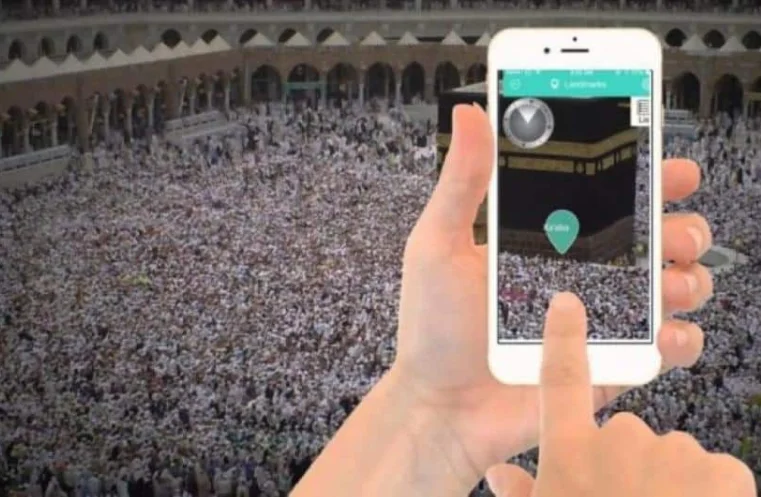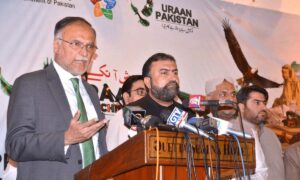Islamabad, Mar 10, 2025: The Ministry of Religious Affairs and Interfaith Harmony remains committed to enhancing Hajj arrangements and fostering religious coexistence across Pakistan.
Operating under the framework of the Rules of Business 1973, the ministry collaborates with relevant institutions in Saudi Arabia and Pakistan to improve pilgrimage services.
\It also works to safeguard minority rights, promote social harmony, and encourage respect for diverse faiths, aligning with constitutional provisions.
Furthermore, the ministry plays a vital role in Islamic education, overseeing Quranic publications, organizing religious seminars, and facilitating international religious collaboration.
Support for Minorities and Religious Welfare
To uplift marginalized communities, the Minority Welfare Fund offers financial assistance and funds for the restoration of religious sites.
Scholarships are granted to minority students, while dedicated programs focus on promoting Seerat-un-Nabi (PBUH), ensuring sectarian harmony, and maintaining accurate Quranic publications.
Additionally, the ministry monitors digital platforms, identifying and reporting blasphemous or sectarian content to curb online religious discord.
Read More:
PM Shehbaz Sharif’s Message on International Women’s Day
Major Religious Events and Competitions
In 2024, the ministry successfully hosted the National Seerat Competition, distributing Rs. 3.5 million in cash prizes. On the 12th of Rabi-ul-Awwal, a Seerat-un-Nabi Conference was organized, attended by senior officials, where the Deputy Prime Minister and Senate Chairman honored winners of the Seerat Book Competition.
Nationwide Milaad-un-Nabi celebrations included informative sessions on economic stability based on Islamic teachings, with relevant literature disseminated in public libraries.
New Initiatives and Legislative Developments
One of the ministry’s key initiatives includes the establishment of a dedicated plant for recycling damaged Quranic pages.
Efforts to reinforce sectarian harmony include awareness campaigns on religious respect, health, and nutrition.
Additionally, nominations for civil awards were proposed for religious scholars and minority representatives.
The ministry also intensified its regulatory oversight of online content, successfully flagging over 16,600 inappropriate links in 2024.
Regular meetings of the Ruet-e-Hilal committees ensured precise lunar observations for religious events.
Enhancing Hajj 2024 Services
With a total budget of Rs. 1.83 billion, Rs. 582.12 million was allocated by December 31, 2024, to enhance pilgrimage services. Key facilities provided for Hajj 2024 included:
- High-quality accommodation, catering, and transport services
- Reception offices at Jeddah and Madinah airports
- 24/7 medical facilities in key locations
- Special provisions for elderly and unwell pilgrims
- Lost-and-found assistance
- Distribution of Zamzam water
- Cost-effective Hajj options and a dedicated mobile app for real-time updates
Under the Government Hajj Scheme, 68,804 pilgrims received training, vaccinations, and travel kits. Additionally, compensation and refunds were processed for families of deceased pilgrims, and 1,200 welfare staff members were deployed for smooth operations.
Hajj Policy 2025: Key Reforms
The new Hajj Policy 2025 introduces multiple improvements, including:
- Expansion of procurement committees and tighter financial oversight
- Implementation of the Hajj Nazim Scheme
- Increased death compensation during Hajj (Rs. 2 million from Rs. 1 million)
- Mandatory insurance coverage for Hajj payments
- Inclusion of Khatm-e-Nabuwwat Oath in marriage contracts, as approved by the Federal Cabinet
Significant legislative measures include:
- The Hajj and Umrah (Regulations) Act 2024 for better oversight of Umrah operators
- New bills ensuring accurate Quran printing
- The Pakistan Ruet-e-Hilal Bill 2023 for standardizing lunar calendar observances
Existing laws enforced by the ministry include:
- The Ehtaram-e-Ramzan Ordinance 1981 (restricting public eating during Ramadan)
- The Muslim Family Laws Ordinance 1961 (regulating family matters)
- The Marriage Functions Ordinance 2000 (curbing excessive wedding expenditures)
Public Engagement and Interfaith Harmony
To facilitate Hajj 2024, new measures were introduced, including:
- Flexible short-stay options and diverse accommodation categories
- Adjusted Hajj Group Organizer (HGO) allocations to comply with Saudi regulations
- Standardized baggage with QR codes and mandatory mobile roaming services
- A digital registration system for convenience
To strengthen interfaith harmony, the ministry:
- Hosts annual interfaith conferences
- Recognizes 10 minority religious festivals such as Christmas, Holi, and Diwali
- Observes August 11 as “Minorities Day” to honor minority contributions
- Ensures political representation with 10 reserved seats in the National Assembly and 23 in provincial assemblies
Advancing Quranic Education and Digital Innovations
To promote Quranic studies, the ministry organized a nationwide Hifz-o-Qirat competition, offering substantial cash rewards and selecting 14 participants for the Qiyam-ul-Lail 2024 program, which aired on PTV.
Successful candidates were chosen to represent Pakistan in global Quranic competitions.
Additionally, an online portal was launched to report objectionable content, along with public awareness initiatives focusing on health, nutrition, and disease prevention.
Commitment to Religious Welfare and National Unity
The Ministry of Religious Affairs and Interfaith Harmony remains steadfast in its mission to enhance religious services, promote peaceful coexistence, and safeguard the rights of all citizens through progressive policies and innovative initiatives.









